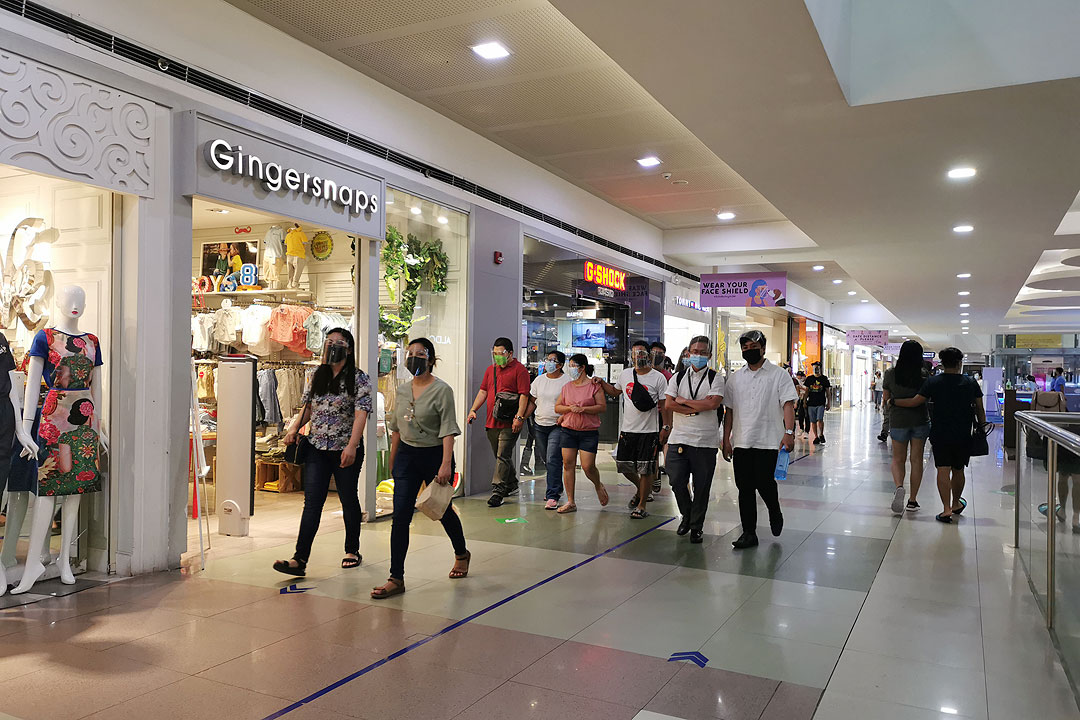
By Justine Irish D. Tabile, Reporter
RETAILERS said they remain hopeful of posting growth this year despite the expected impact of US tariffs and weather-related issues.
Philippine Retailers Association Chairman Roberto S. Claudio said the retail industry started to pick up last year.
“There is just cautious optimism, as these tariff issues with the US are developing. And we need to see how it will affect our economy and the retail industry,” he said on the sidelines of the National Retail Conference and Expo 2025.
“But Philippine consumers are coming out. The malls are full again. The average purchasing amount may be lower, but people are coming out. So, we see a retail industry that will continue to grow, especially over the next two years,” he added.
According to Mr. Claudio, retailers are still expecting to see at least 10% growth.
“We should be able to hit that. Everybody’s trying to push individual growth per company, and that is a reasonable percentage of growth,” he said.
PRA President Alice T. Liu said that the US tariffs are expected to affect the retail industry indirectly.
“For countries where tariffs are high, they will look for other countries to flood with their products. So that in this way is an indirect effect on us,” she added.
She said the first half was good for retailers due to the midterm elections.
“When there’s an election, there’s a little bit of money circulating. That’s why I think for most retailers, the first half was good. But we are a little bit cautious but optimistic for the second half,” she said.
She said retailers are hopeful for a pickup in the second half due to the yearend holidays and the President Ferdinand R. Marcos, Jr.’s State of the Nation Address promise to address flooding.
“We’re hoping when that’s fixed… more disposable money (will flow to) customers to really spend on other nonessential things,” she said.
“Filipinos are always resilient and will really find a way to make ends meet. So, we keep our fingers crossed and stocks ready so that we can really have the right goods at the right time when the peak season comes,” she added.
She said flood remediation measures are particularly important as the more typhoons are expected to traverse Philippine territory.
“Flood control is very important because that will determine our ability to really react fast. We cannot control the weather, but we can prepare well enough to really make sure that there is not too much disruption,” she added.
According to Mr. Claudio, some retailers lost revenue over the nearly almost two weeks in July when rain fell continuously.
“That really brought down the revenue. But I don’t think those are lost sales because since people were not able to go out; maybe they didn’t spend. Maybe now that the sun is out, consumers will also go back to the malls,” he added.
Mr. Claudio said that the industry continues to faces a playing field that is stacked in favor of e-commerce platforms.
He said that because of the de minimis rule, which allows shipments to enter untaxed if their value falls below P10,000, customers would rather buy through online marketplaces.
“Wwhat happens is that we, the traditional retailers, are losing revenue. It is okay with us if it’s a matter of being competitive, but this is an issue of an unlevel playing field,” he added.
The retailers are pushing to amend the Internet Transactions Act or abolish the de minimis rule.